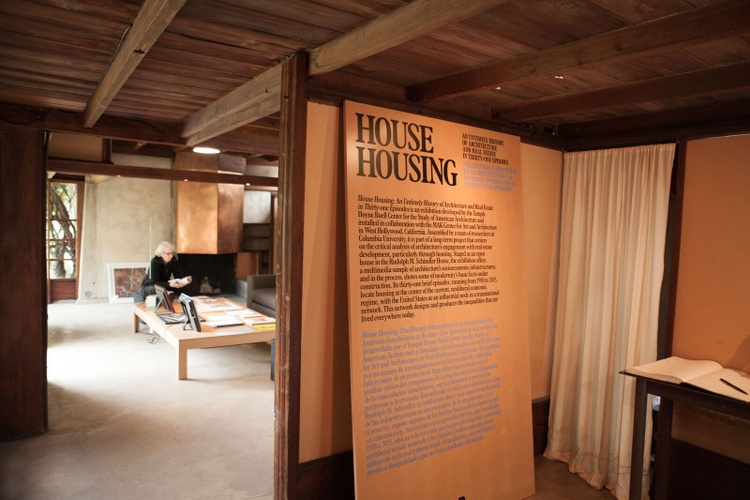A
AIA CES Credits
AV Office
321M Fayerweather Hall
Abstract Publication
415 Avery Hall
Academic Affairs
400 Avery Hall
Academic Calendar, Columbia University
Academic Calendar, GSAPP
Admissions Office
407 Avery Hall
1172 Amsterdam Avenue
New York, New York 10027
Advanced Standing Waiver Form
Must be printed and returned to 400 Avery Hall
Alumni Board
Alumni Office
405 Avery Hall
1172 Amsterdam Avenue
New York, New York 10027
Architecture Studio Lottery
Assistantships
Avery Library
300 Avery Hall
1172 Amsterdam Avenue
New York, NY 10027
Avery Review
Avery Shorts
B
Black Student Alliance at Columbia GSAPP
Building Science & Technology Waivers
Bulletin Archive
C
Career Services
300M Avery Hall
Columbia Books on Architecture and the City
Commencement
Communications Office
415 Avery Hall
Conversations podcast
Counseling and Psychological Services
Courses
Credentials Verification
Credit Transfer
Cross Registration
D
Dean’s Letter
Dean’s Office
402 Avery Hall
1172 Amsterdam Avenue
New York, NY 10027
Development Office
404 Avery Hall
Directory of Classes (All Columbia University)
Disability Services
Dodge Fitness Center
3030 Broadway Dodge
Dual Degree Program Requirements
E
End of Year Show
Events Office
415 Avery Hall
External Funding Sources
F
Faculty Directory
Feedback
Finance Office
406 Avery Hall
Fitch Colloquium
Future Anterior Journal
G
GSAPPX+
Grades
Graduation
Graphics Project
H
Honor System
Human Resources
Hybrid Pedagogy Resources
I
IT Helpdesk Ticket, GSAPP
IT Office, GSAPP
IT, Columbia University (CUIT)
Identity
International Students and Scholars Office (ISSO)
N
News and Press Releases
Newsletter Sign Up
Non-Discrimination Statement and Policy
O
Onera Prize for Historic Preservation
Online Admissions Application
GSAPP Admissions 407 Avery Hall
Output Shop
116 Avery Hall
1172 Amsterdam Avenue
New York, NY 10027
Ownership of Student Work Policy
P
Paris Prize, Buell Center
Paul S. Byard Memorial Lecture Series
Percival & Naomi Goodman Fellowship
Plagiarism Policy
Policies & Resources
Press Releases
Publications Office
415 Avery Hall
1172 Amsterdam Avenue
New York, New York 10027
R
Registration
Registration: Add / Drop Form
Room Reservations
S
STEM Designation
Satisfactory Academic Progress
Scholarships
Skill Trails
Student Affairs
400 Avery Hall
Student Awards
Student Conduct
Student Council (All Programs)
Student Financial Services
Student Health Services at Columbia
Student Organization Handbook
Student Organizations
Student Services Center
205 Kent Hall
Student Services Online (SSOL)
Student Work Online
Studio Culture Policy
Studio Procedures
Summer Workshops
Support GSAPP
House Housing, LA
Schindler House, 835 N Kings Road, West Hollywood, CA 90069
House Housing: An Untimely History of Architecture and Real Estate is an ongoing, multi-year research project conducted by the Temple Hoyne Buell Center for the Study of American Architecture at Columbia University. The initiative seeks to encourage a public, historically informed conversation about the intersection of architecture and real estate development. The untimeliness of this history, as indicated by the project’s title, is twofold. First, it returns us to financial matters widely discussed in the immediate aftermath of the 2008 foreclosure crisis and only now reentering the American public sphere via the campaign trail. Second, it discloses surprising repetitions of themes, tendencies, and actions—reminding us that the economic infrastructures on which architecture rests are the outcome of such repetitions, rather than an a priori, natural ground. These infrastructures locate housing at the center of the current economic regime, with the United States as an influential node in a transnational network.
House Housing consists of a growing body of research that draws on multimedia sources. The results have appeared in numerous locations as exhibitions, panel discussions, and publications, and relate to different institutional frames. Following exhibitions in Venice during the 2014 Architecture Biennale, in 2015 at the National Public Housing Museum during the first Chicago Architecture Biennial, and as a part of the Wohnungsfrage (“The Housing Question”) project at the Haus der Kulturen der Welt in Berlin, House Housing comes to the MAK Center at the Schindler House. The artifacts assembled in the installation consider typologies from architect-designed houses to prefabricated apartment blocks to suburban gated communities. All of these architectures are analyzed in light of their position at the intersection of design, policy, and finance. New narratives emerge out of surprising juxtapositions.
House Housing shows that the inequalities of all types being discussed in the current US presidential campaign have been fundamental to the operation of real estate development for generations. Considering historical and contemporary cases, MAK and the Buell Center have invited scholars and practitioners to discuss how we might reframe our understanding of the relationships between architecture, housing, and real estate in light of the inequalities they both produce and reflect.
Opening Panel Discussion and Reception: Saturday, April 9 Panel from 3-5 PM with free public reception to follow
Julie Eizenberg, Juliana Maxim, and Andrew Wiese, moderated by Christopher Hawthorne, Architecture Critic for the Los Angeles Times.










